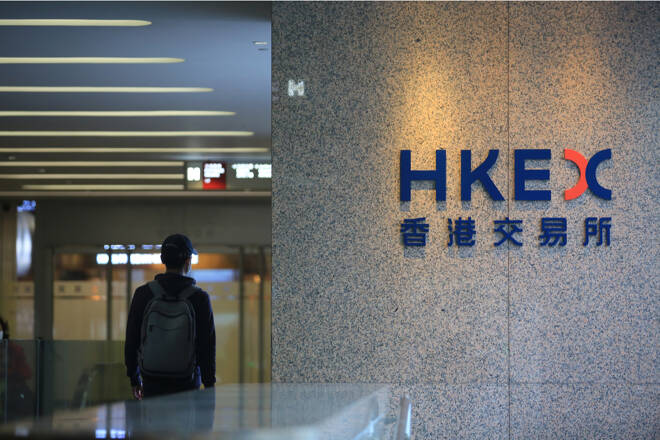Advertisement
Advertisement
Hang Seng Index: Inflation Relief Fuels Asian Tech Stock Gains as Trump Tariffs Loom
By:
Key Points:
- Hang Seng gains 0.83% as US inflation relief bolsters rate-sensitive real estate and tech stocks.
- Nikkei 225 climbs 0.39% despite Yen strength; Tokyo Electron and Softbank lead tech stock rally.
- Geopolitical tensions and Fed policy keep markets cautious; watch for US-China trade developments this week.
US Markets Rally on Inflation Relief
Wall Street roared back to life as cooling inflation rekindled hopes of a less aggressive Federal Reserve, sparking a rally across global markets.
US markets posted strong gains on Wednesday, January 15. The Nasdaq Composite Index surged 2.45%, while the Dow and the S&P 500 posted gains of 1.65% and 1.83%, respectively.
Meanwhile, 10-year US Treasury yields tumbled amid shifting sentiment toward the Fed rate path, closing at 4.653%. The sharp drop underscored market relief, suggesting a more dovish Fed rate path.
Falling yields boosted demand rate-sensitive tech stocks, with Tesla (TSLA) leading the charge, climbing 8.04%.
US Core Inflation Drops, Bolstering Fed Rate Cut Bets
US core inflation eased from 3.3% in November to 3.2% in December, raising hopes for a potential rate cut in the first half of 2025. However, rising energy prices pushed headline inflation higher, which may complicate expectations of an imminent policy shift in March.
Arch Capital Global Chief Economist Parker Ross highlighted key takeaways from the CPI data:
“Why are 10y yields down ~10bps this morning after an “in-line” December CPI report? Under the hood, monthly Supercore inflation (+0.21% m/m) was the softest since July, with 12bps of that gain coming from airfares alone.”
Ross added,
“Core Services (which includes housing) also printed the weakest gain (+0.265% m/m) since June. Shelter was a key driver of the cooling here, stepping down to a 15bps contribution to Core Services from 20bps in Nov.”
The marked drop in Core Services inflation, a key contributor to underlying inflation, was one highlight of the December report.
December’s US CPI Report set the tone for the Thursday Asian market session.
Hang Seng Rises on Softer US Inflation
In Asian markets, the Hang Seng Index gained 0.83% on Thursday morning. Rate-sensitive real estate and tech stocks contributed to the gains.
The Hang Seng Tech Index advanced by 0.86%, with tech giants Alibaba (9988) and Baidu (9888) rising 0.13% and 0.13%, respectively. The Hang Seng Mainland Properties Index climbed 0.84%.
However, lingering concerns over China’s economy and US tariffs capped broader gains. Mainland indices like the CSI 300 and Shanghai Composite showed modest increases of 0.02% and 0.21%, respectively.
Nikkei Advances Despite Yen Strength
Japan’s Nikkei Index advanced by 0.39% on Thursday. A stronger Japanese Yen limited the upside as the USD/JPY declined by 0.95% on Wednesday, closing at 156.433.
Rate-sensitive tech stocks Tokyo Electron (8035) and Softbank Corp. (9984) rose 0.70% and 2.22%, respectively, mirroring US tech stock gains. However, the stronger Yen weighed on export-focused stocks, with Nissan Motor Corp (7201) down 4.39%.
ASX 200 Rallies on Banking Sector Boost
Meanwhile, Australia’s ASX 200 Index rallied 1.32% on Thursday morning. Banking and tech sector stocks led the morning gains.
Notable movers included the Commonwealth Bank of Australia (CBA) and ANZ (ANZ), which surged by 2.62% and 2.57%, respectively. The overnight fall in US Treasury yield drove demand for Aussie banks. Lower US Treasury yields may increase the appeal of Aussie banks for yield-focused global investors.
The S&P/ASX Tech Index advanced by 1.13%, supporting the rally.
Outlook: Navigating Uncertainty
Geopolitical and macroeconomic risks continue to influence global markets:
- US-China trade tensions and tariff uncertainties continue to weigh on growth prospects.
- Higher US headline inflation and a tight labor market influence the Fed, complicating market expectations.
- Potential Chinese stimulus measures may counterbalance global trade headwinds.
A measured US tariff rollout and rising Fed rate cut bets could support Asian equities. However, a cautious Fed or intensified US-China tensions may require conservative investment strategies. Investors should monitor trade policy shifts and monetary dynamics closely to navigate ongoing volatility.
Traders must remain vigilant as markets adjust to shifting economic and geopolitical developments. Discover strategies to navigate this week’s market volatility here.
About the Author
Bob Masonauthor
With over 28 years of experience in the financial industry, Bob has worked with various global rating agencies and multinational banks. Currently he is covering currencies, commodities, alternative asset classes and global equities, focusing mostly on European and Asian markets.
Advertisement
